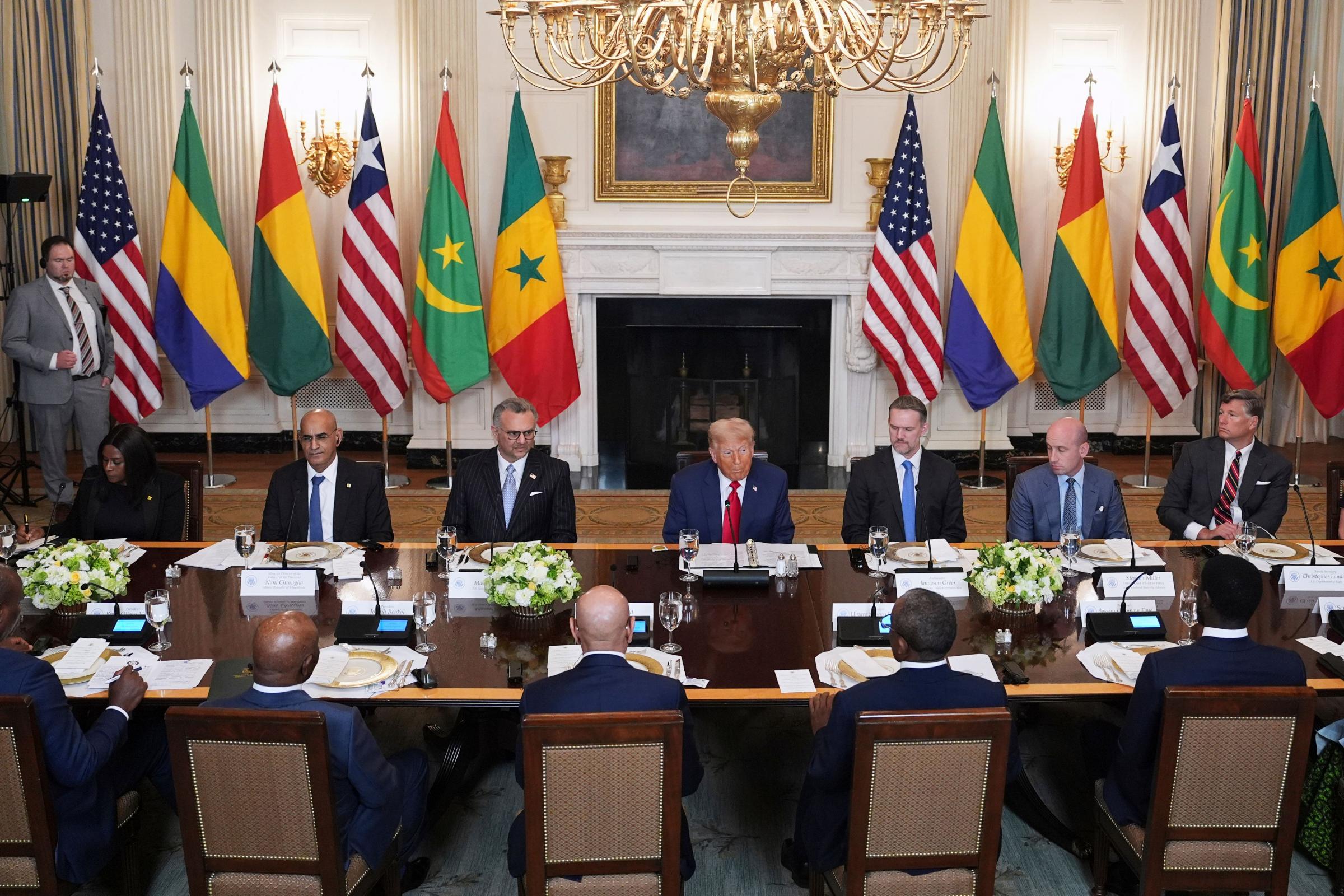Selective Invitations Reflect a Shift in US-Africa Relations
The United States recently hosted a high-level meeting with leaders from five African countries in a move designed to highlight economic partnerships—but the selective guest list has sparked debate over Washington’s motives and long-term strategy.
At a working lunch held at the White House, President Donald Trump welcomed the presidents of Mauritania, Guinea-Bissau, Liberia, Senegal, and Gabon. According to U.S. officials, the goal was to identify new commercial opportunities that could benefit both American interests and African partners. However, the absence of the continent’s major economic players—such as Nigeria, South Africa, Egypt, and Ethiopia—raised questions about the broader intent of the summit.
Exclusion of Regional Powers Draws Scrutiny
The countries omitted from the event are members or close partners of BRICS, a bloc that includes Russia and China—nations the Trump administration sees as geopolitical rivals. By excluding these key economies, critics argue the summit served as a tool to isolate BRICS-aligned countries and promote bilateral ties with more compliant partners.
Professor Christopher Afoke Isike, a specialist in African international relations, described the invited nations as “low-hanging fruit”—states rich in natural resources but lacking the geopolitical clout to resist U.S. terms.
“Most African regional powers are already aligning themselves with BRICS or seeking membership,” Isike noted. “These five invited countries are outside that strategic alignment, making them more accessible for direct U.S. influence.”
Commercial Focus Overshadows Traditional Diplomacy
During the summit, African leaders praised President Trump and advocated for investment in their nations’ rich reserves of minerals and raw materials. President Brice Oligui Nguema of Gabon emphasized that their countries are not poor, but underdeveloped due to a lack of infrastructure and investment.
“We need partners for win-win partnerships, not charity,” Nguema said. He also encouraged the U.S. to trade directly with governments rather than through intermediaries, highlighting Africa’s mineral potential as a point of entry.
The conversation also touched on issues like piracy in the Gulf of Guinea and migratory trends from West Africa. These countries, situated along the Atlantic, are becoming focal points in both security and migration dialogues with Washington.
US Policy Shifts Toward Transactional Engagement
The summit marks a continued departure from traditional U.S. policy under past administrations, which emphasized multilateral engagement and humanitarian assistance. USAID programs have been drastically reduced under Trump, replaced by a model prioritizing reciprocal trade and investment.
Trump has also floated new tariffs targeting nations he deems “anti-American,” and his administration has imposed travel restrictions affecting many African and Middle Eastern countries. Despite these moves, the president argues that his strategy will foster self-reliance among African states and reduce dependency on U.S. aid.
“We’re not here to give handouts,” a senior White House official stated. “We’re here to build lasting partnerships based on mutual benefit.”
China Remains a Pervasive Competitor
The shadow of China loomed large over the summit. As Africa’s largest bilateral trade partner, Beijing has cemented its influence through infrastructure projects and educational exchanges. In contrast, the U.S. approach now centers on critical mineral access and security cooperation.
Chinese leaders have recently expanded zero-tariff treatment for most African nations, further challenging U.S. efforts to regain influence. Countries like Guinea-Bissau and Senegal have publicly praised China’s support and ongoing engagement.
A High-Stakes Gamble for Influence
Analysts believe that Trump’s selective approach could redefine U.S.-Africa relations for years to come. While the chosen five nations may benefit from increased investment and security cooperation, the broader diplomatic fallout from excluding Africa’s major economies remains uncertain.
A more comprehensive African leaders’ summit is reportedly in the works for later this year. Until then, Washington’s strategy signals a decisive shift—from humanitarian support to commercial transactions—in its quest to counter China and reshape the balance of power on the continent.
Whether this realignment will prove sustainable or merely symbolic remains to be seen, but one thing is clear: Africa is now a central stage in the great-power competition between Washington and Beijing.







